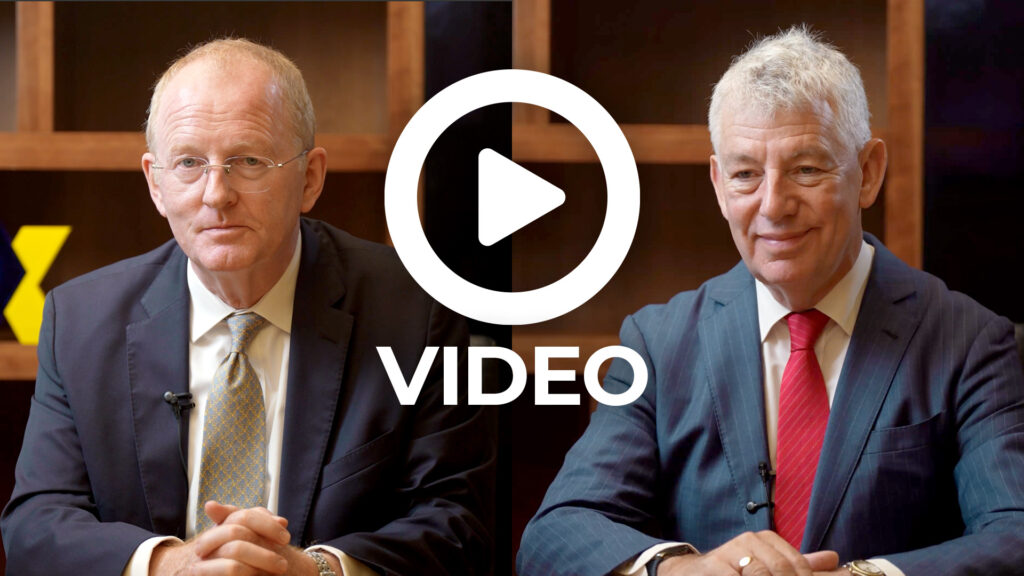Regulation (EC) 261/2004 litigation: claim agencies in the crosshairs of the European Commission, April 2017
As massive litigation has stemmed from the Regulation (EC) 261/2004, establishing common rules on compensation and assistance to passengers in the event of denied boarding and of cancellation or long delay of flights, claim agencies have decided to step into what they consider a new, and lucrative, market to offer management services of claims for compensation.
This briefing aims to provide a clear understanding of the European Commission’s warning to air passengers and claim agencies, as well as commenting on the impact of such practice in certain key jurisdictions.
A warning to air passengers facing claim agencies specialised in Regulation 261/2004
Incorrect practices by some claim agencies triggered the publication of an Information Notice by the Commission to the attention of air passengers on 9 March 2017 (the Notice). Through this notice, the Commission formally reminds claim agencies specialising in Regulation 261/2004 of their duties and invites Member States to ensure full compliance with relevant EU rules.
The Notice focuses on four key, general legal obligations that claim agencies shall strictly observe, subject to adjustments in accordance with each EU Member State’s national law.
- The claim agencies shall provide clear and unequivocal information in relation to the price of their services. The Commission tackles the scheme of certain claim agencies which scatter pricing information across their website, creating uncertainty in the calculation of the total fees in the eyes of passengers.
- The Commission then underlines that, where a passenger decides to be represented in court by another person or entity, in line with applicable national legislation, claim agencies must be able to provide a signed power of attorney with a copy of ID or passport of the passenger.
- The third key legal principle the Commission considered necessary to remind to claim agencies, while informing passengers, is that persistent unsolicited telemarketing is prohibited under the Unfair Commercial Practices Directive.
- Finally, the notice endeavors to preserve data protection rules, stressing that any transfer to claim agencies of passengers’ personal data by a third party to the contract of carriage (for example, ticket vendors and travel agents) must be expressly permitted by the passenger, and that processing of such information is in any case submitted to EU data protection rules.
Whilst the first, third and fourth abovementioned rules are usually not raised in disputes between air carriers and passengers under Regulation 261/2004, the second, relating to the power of attorney of claim agencies, is particularly interesting as this has been at the centre of debates in some European jurisdictions.
The impact of the involvement of claim agencies in France, Belgium, the Netherlands and England & Wales
France: Champerty and maintenance vs procedural issues
As indicated before, the second reminder of the Commission relating to the power of attorney of claim agencies will certainly add to the ongoing debate before French courts. Claim agencies are often at the root of disputes lodged before French courts.
The scenario consists of a passenger liaising with a claim agency through its website and the latter bringing the case before French courts through the services of a French lawyer. Not all the clients of such entities are happy with their services, as can be deducted from the various comments posted on consumers’ websites. To our knowledge, neither the French authority for consumers (DGCCRF) nor the French bar associations have taken any action against this unfair competition.
Under the French Code of civil procedure, an Avocat is not required to disclose a Power of Attorney. His involvement implies that he has been effectively and validly instructed by their clients. However, in case of doubt, a Court may require evidence to confirm the instruction.
In Regulation 261 matters, French courts are sensitive to this issue and various courts have already declared the nullity of the proceedings on this ground, holding that the involvement of a claim agency suggests that the lawyer has had no contact with their clients.
Another important issue arising out of the drastic development of claim agencies is a compliance aspect. By providing legal advices and offering representation to passengers, the claim agencies’ activity is in breach of the cornerstone French Act no 71-1130 of 31 December 1971 regulating the practice of law, when they offer judicial services to the public.
Belgium
In Belgium, airlines are faced with the growing presence of claim agencies that act on behalf of passengers in relation to claims under Regulation 261 and represent them before Belgium Courts.
Recently, the Belgian Supreme Court confirmed that passengers can mandate claim agencies to lodge their claim under Regulation 261 on their behalf. The Supreme Court upheld that such representation under article 1984 of the Belgian Civil Code implies:
- Evidence of the claim agency’s power of representation.
- That it is made clear in the document initiating the proceedings that the claim agency acts in its capacity of representative to the passenger.
This document mentions both the passenger’s as well as the claim agency’s identity.
The practical implication of both the Commission’s Information Notice as well as the Supreme Court’s case law is that an airline may require the claim agency to be provided with a signed power of attorney confirming that the passenger agrees to be represented by the claim agency for their claim under Regulation 261/2004.
The Netherlands
In the Netherlands, claim agencies have flourished in what is seen to be a very lucrative market. A large number of claim agencies exist, with EU claim probably being the largest.
One of the reasons of the predominance of claim agencies in the Netherlands is that these claims are brought before courts where parties can act ‘in person’ and can be represented by a representative that is not a lawyer.
Pursuant to Article 80 of the Dutch Civil Proceedings Code, the judge can request the claim agency acting as representative to the passenger, to produce a written power of attorney. This does not apply when the claimant is represented by a lawyer.
In addition to this, an airline will have the possibility to request the claim agency to provide evidence that it has been mandated by the passenger (Article 3:71 Dutch Civil Code). Contrary to the practice in Belgium, it seems to be an established practice in the Netherlands that claim agencies provide airlines with a power of attorney, without airlines even having to ask for it.
This may explain why the power of representation of claim agencies is only very rarely an issue. The practical impact of the Commission’s Information notice is therefore limited in the Netherlands even though it provides some clarification on other relevant points as set out above.
England & Wales
As in other EU Member States, the number of Claims Management Companies (CMCs) has grown exponentially in the last 36 months. It is correct to distinguish the conduct of CMCs from those of solicitors specialising in EU261 claims as, under English law, CMCs cannot conduct litigation on behalf of passenger. This is the sole domain of solicitors and barristers. In addition, solicitors derive their authority to act on behalf of passengers from statute and therefore, do not require a valid power of attorney. The same cannot be said for CMCs although valid powers of attorney are rarely provided without prompting.
The suggestion by the Commission that a valid power of attorney must be available may cut across some practices of CMCs that are more common place. It is not uncommon for CMCs to use enquiry forms or a matrix for a passenger to check their eligibility for compensation. Airlines have long complained that CMCs often use this as a premise for them to present a claim to an airline on behalf of the passenger. Thus, airlines regularly encounter identical claims, for the same passenger, emanating from three or four different CMCs. Aside from increasing the administrative burden on airlines, robust systems have had to be implemented to minimise the risk of duplicate payments. The requirement to have access to a valid power of attorney will go some way to preventing this practice. However, until there is a more thorough intervention from a regulator or indeed the Commission, the practice may not be entirely eradicated.
In order to circumvent a CMCs lack of standing to represent passengers before the court, some CMCs have sought to have the right to claim under EU261 assigned to them, by the passenger. Under English law, such practice is usually seen as savouring of champerty and maintenance or put another way, unwanted interference in litigation in circumstances whereby the CMC does not have a genuine commercial interest in the outcome of the litigation. Consequently such arrangements are invalid under English law. This practice is normally favoured by CMCs with a presence in other EU Member States, where the same legal impediments do not exist.
For more information, please contact Pierre Frühling, Partner, Brussels/Paris, on +32 (0) 2643 3406/+33 1 44 94 40 50, or pierre.fruhling@hfw.com, or Jean-Baptiste Charles, Senior Associate, Paris, on +33 1 44 94 40 50 or jean-baptiste.charles@hfw.com, or Elisabeth Decat, Senior Associate, Brussels, on +32 (0) 2643 3408, or elisabeth.decat@hfw.com, or your usual contact at HFW.
Download a PDF version of ‘Regulation (EC) 261/2004 litigation: claim agencies in the crosshairs of the European Commission, April 2017’












